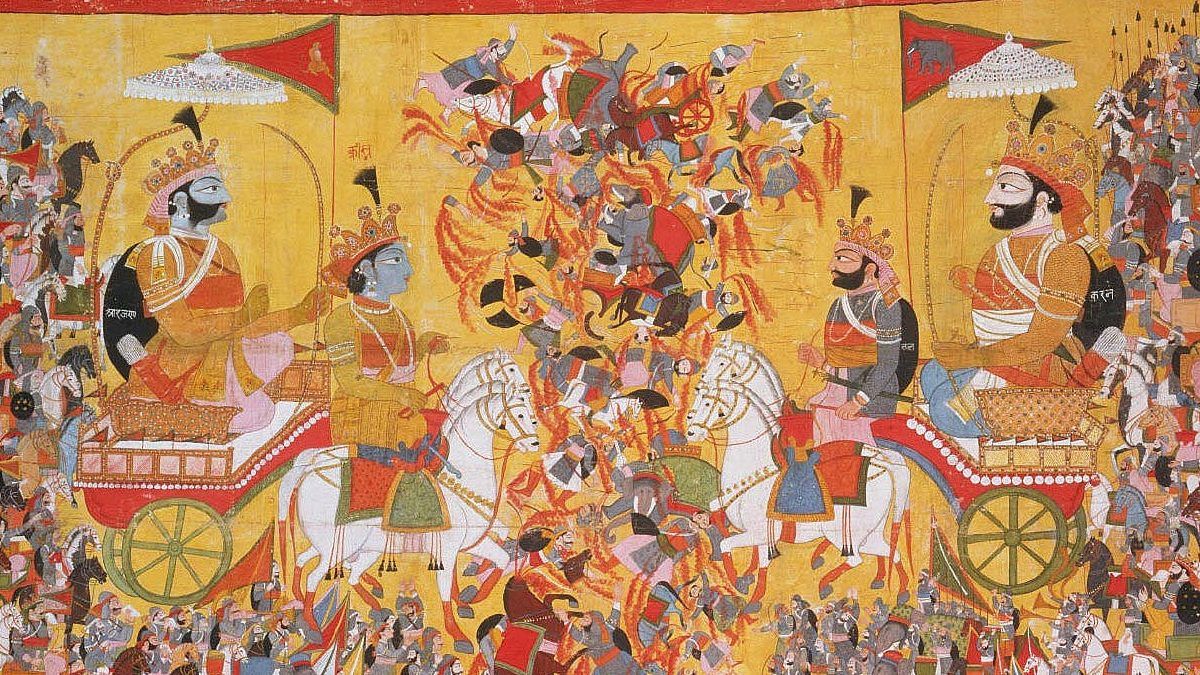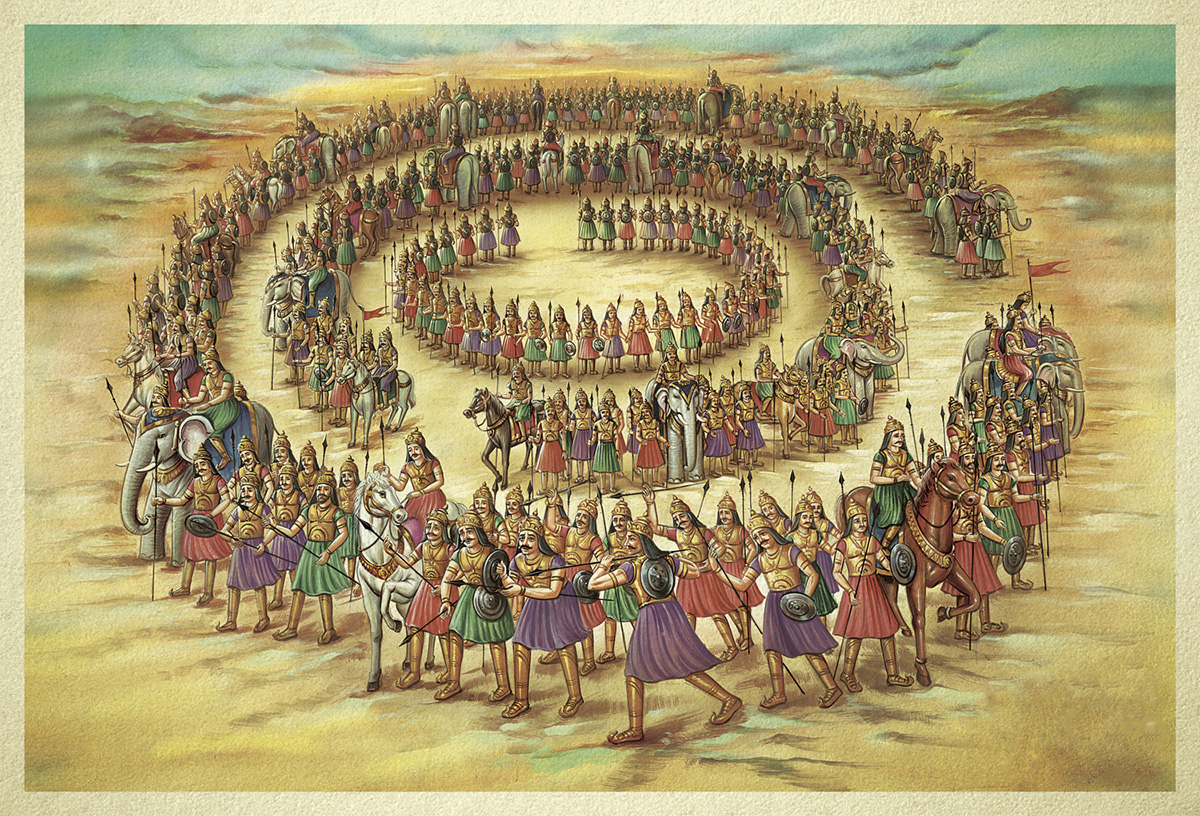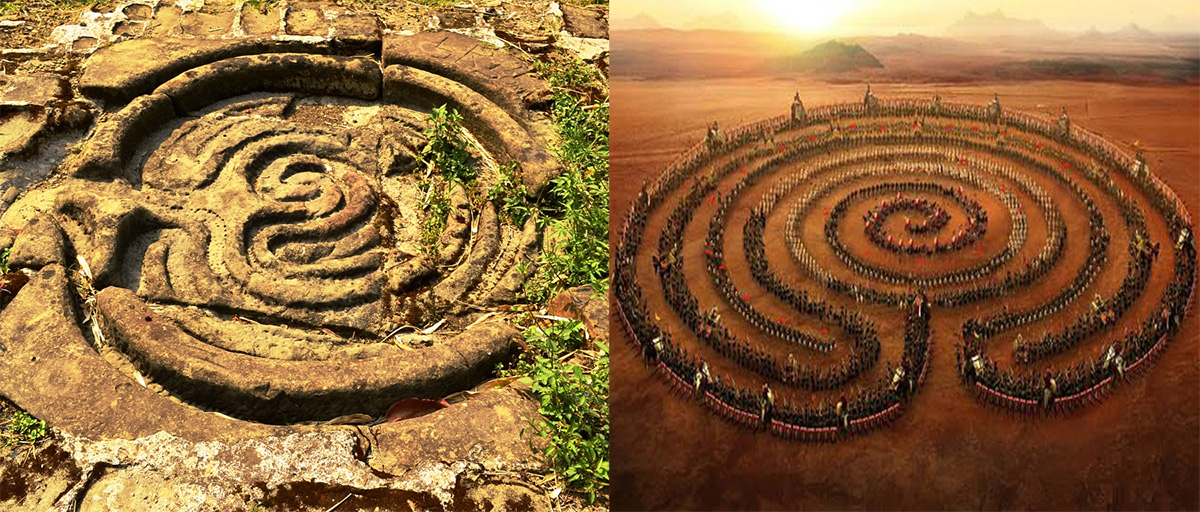More Coverage
Twitter Coverage
Satyaagrah
Written on
Satyaagrah
Written on
Satyaagrah
Written on
Satyaagrah
Written on
Satyaagrah
Written on
JOIN SATYAAGRAH SOCIAL MEDIA
BHU starts India's first Hindu Studies course with topics on ancient warfare, military strategy, women in military

VARANASI: For the first time, Hinduism will be taught as a subject in the Banaras Hindu University (BHU) and students will learn ancient knowledge, tradition, arts, science and skills under this course in the University’s Faculty of Arts. The university is starting the Hinduism course of two years with 40 seats. An entrance exam will be held on October 3 to shortlist the students for the course.
BHU vice chancellor Vijay Kumar Shukla said "It will be the first degree course of Hinduism in our country. Earlier, only a diploma course was running in Himachal university. We are teaching other cultures, traditions like Christianity, Islam in universities while Hinduism was not on streamline".
The MA course on Hindu Studies, a joint effort by BHU’s Department of Philosophy and Religion, Bharat Adhyayan Kendra, Department of Sanskrit, Department of Ancient History, Culture, and Archeology, is the first of its kind in India.
In January 2021, senior members of the board of studies at BHU had passed the proposal to begin this course after long deliberations. Apart from Indian students, foreign students will also be able to join this course.
Professor Sadashiv Dwivedi, Coordinator at Bharat Adhyayan Kendra BHU, said that the aim of the course was to prepare scholars of ancient India wisdom, including philosophy and languages. Students would be able to understand Indian culture and Hinduism from a scientific perspective.
 Chakravyuh, The Most Dangerous Battle Mechanism Of The Kurukshetra |
Other central universities will also begin the Hindu Studies course soon. As per BHU Vice Chancellor VK Shukla, the course is being started because Christian and Islamic countries have various religion-based courses in their countries but India was lacking in the same.
He said smart classes will be organised for students in varsity and students from other countries can also be part of the course. He said a large number of applications from foreign students indicates interest of other countries in Hinduism.
As per a report in Hindustan Times, the course structure is said to include topics on ancient warfare in India’s ancient texts. The role of female soldiers, military strategy, setting up of camps and military negotiations as envisaged in Indic scriptures are to be included under the topics.
The HT report mentioned that officials at the university explained that the topics aim to introduce the idea of the military to uncover the references of ‘defence studies’ in Vedic literature and to use it in contemporary times to solve present challenges.
According to the official document accessed by the Hindustan Times, there are four units under one of the papers titled ‘Indian military, science and strategy’. These units focus on topics like:
- Definitions of enemies and allies
- Ways to mitigate enemies and promote allies
- Idea of women in military
- Construction of camp and fort
- Right time and place of way to war
- Making of war strategy and its implementation and
- Strategy after victory and defeat, among others
Explaining the idea behind introducing such a paper in the ‘Hindu Studies’ programme, a senior university official said, “We have references of military sciences and military strategies in vedic literature that are not brought into the knowledge and practice as of now. It is necessary for the students to study Hindu military science and strategy through the curriculum.
In this programme, the students will study two important books: Vasistha’s ‘Dhanurveda Samhita’ and Vaishampayan’s ‘Neeti Prakashika’, both in Sanskrit, which exclusively deal with military strategy and nobody knows about them.”
“The knowledge and values depicted in these texts are very important so far as the formation of the strategies of national security is concerned. They not only mention strategies on how to deal with the external enemies of the country but only talk about the internal elements which are responsible for endangering the security of the country. Many countries, including China, use their ancient military knowledge in the present context. India also needs to move in that direction,” the official said, on condition of anonymity.
It is notable here that many Indian texts focus on the idea of warfare, politics, national strategy and administration. However, the studies and research on these topics are limited to history courses and have rarely been implemented in the mainstream syllabus.
 Chakra Vyuha Formation Its Remains Piplu Fort |
‘Women in military’
When asked about the introduction of the topic on “women military”, the official said, “We have a great history of participation of women in the military. For example, Rani Ahilyabai Holkar and Rani Laxmibai. Both have fought in the battlefields. Presently, women are part of our defence services. Students should know the origin of the concept of women in the military.”
Interestingly, people from various parts of the country have shown a great deal of interest to learn more about Hindus and their civilisation. “A large number of these queries are from NRIs who have a keen willingness in staying connected with their roots and gain more knowledge,” Arts faculty dean Vijay Bahadur Singh was quoted in the HT report.
40 students will be admitted in the first batch this year. The two-year programme will offer nine core (compulsory) and seven elective (optional) papers. Even as the core papers focus on developing the understanding of principles of Hindu civilisation, society, culture and practices, the elective papers emphasise on acquiring knowledge in areas like military, law, politics, economics, arts, and linguistics. Officials said the idea behind this is to help students to “contextualise” their understanding of Hindu systems and practices in the present context.
The core papers are based on Ramayana, Mahabharata, puranas, dharma, karma, western methods of understanding discourses, and Sanskrit knowledge, among others.
Arts faculty dean Vijay Bahadur Singh said there was a need for “expertise” in “Hindu Studies”. “Such need will only grow with time, because of India’s rapid emergence as an economic, military, technological, and cultural power on the global stage, and the consequential heightened interest in Hindus and their civilisation. Unfortunately, no Indian university offers such a programme. This programme will fill that gap,” he said.
At present, several universities offer courses in religious studies — Aligarh Muslim University offers courses in Islamic studies while Delhi University teaches Buddhism studies.
Singh said that BHU has been receiving requests from foreign students and NRIs seeking details about the course. “People from various parts of the world have shown great interest in this course as they want to learn more about Hindus and their civilisation. A large number of these queries are from NRIs who have a keen willingness in staying connected with their roots and gain more knowledge,” he said.
This is, perhaps, for the first time in the country that the various fields of Hindu scriptures such as military science, philosophy, epistemology have been given an academic format. The syllabus includes the tradition of Hinduism, which mainly consists of the principles, interpretations, debates and methods of determining the meaning of scriptures, Western knowledge epistemology, Ramayana, Mahabharata, architecture, folklore, folk-drama, linguistics and ancient military science.
 Support Us
Support Us
Satyagraha was born from the heart of our land, with an undying aim to unveil the true essence of Bharat. It seeks to illuminate the hidden tales of our valiant freedom fighters and the rich chronicles that haven't yet sung their complete melody in the mainstream.
While platforms like NDTV and 'The Wire' effortlessly garner funds under the banner of safeguarding democracy, we at Satyagraha walk a different path. Our strength and resonance come from you. In this journey to weave a stronger Bharat, every little contribution amplifies our voice. Let's come together, contribute as you can, and champion the true spirit of our nation.
 |  |  |
| ICICI Bank of Satyaagrah | Razorpay Bank of Satyaagrah | PayPal Bank of Satyaagrah - For International Payments |
If all above doesn't work, then try the LINK below:
Please share the article on other platforms
DISCLAIMER: The author is solely responsible for the views expressed in this article. The author carries the responsibility for citing and/or licensing of images utilized within the text. The website also frequently uses non-commercial images for representational purposes only in line with the article. We are not responsible for the authenticity of such images. If some images have a copyright issue, we request the person/entity to contact us at satyaagrahindia@gmail.com and we will take the necessary actions to resolve the issue.
Related Articles
- An Artisan Heritage Crafts Village: Indigenous Sustainability of Raghurajpur
- A new symbol of Hindutva pride, Shri Kashi Vishwanath Temple Corridor
- Bhagwad Gita course for corporates is all set to launch at IIM Ahmedabad, will teach management and leadership
- Jagannath Temple administration issues clarification on proposed sale of temple lands
- A Different 9/11: How Vivekananda Won Americans’ Hearts and Minds
- Srikalahasti Temple, Dakshina Kailash
- Culture And Heritage - Meenakshi Temple Madurai
- Shri Murudeshwar Temple: Home To The World’s Second Tallest Shiva Statue
- Biggest Wonder of the World : Kitchen of Lord Shri Jagannath
- The forgotten temple village of Bharat: Maluti
- Lakshmi Narasimha Swamy Temple, Antarvedi, Andhra Pradesh
- Gita Press Gorakhpur – Bringing Sacred Hindu Texts to Every Hindu Home
- Manyavar commercial featuring Alia Bhatt vilifies Hindu wedding ritual Kanyadaan: Why not object Western practice of ‘giving away the bride’ and Nikah (marriage contract)
- History books should teach India’s civilisational, linguistic heritage, not unfounded claims: Parliamentary Committee meets to discuss NCERT books
- Hindu Survival: What Is Needed To Be Done?




























